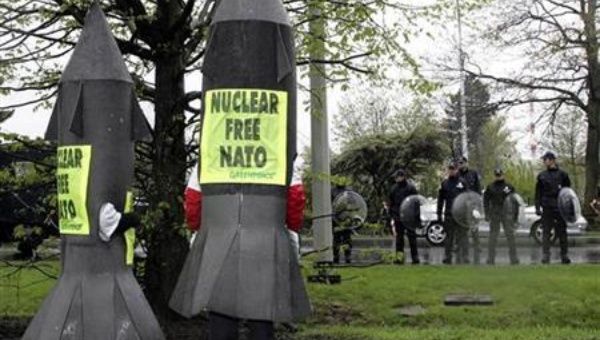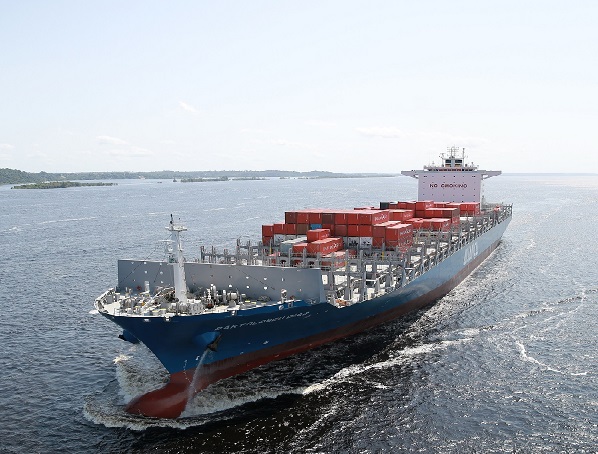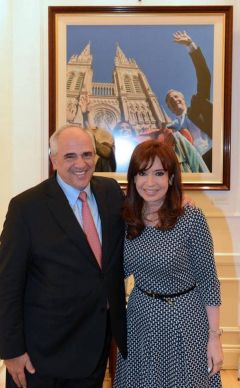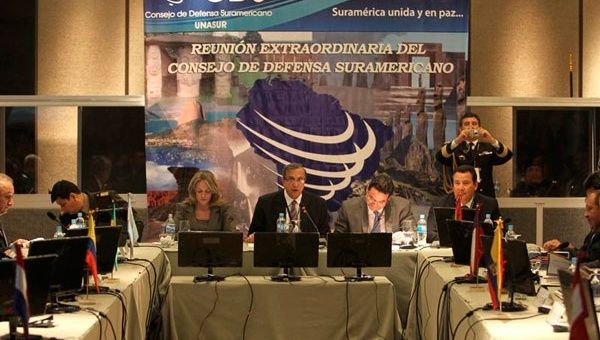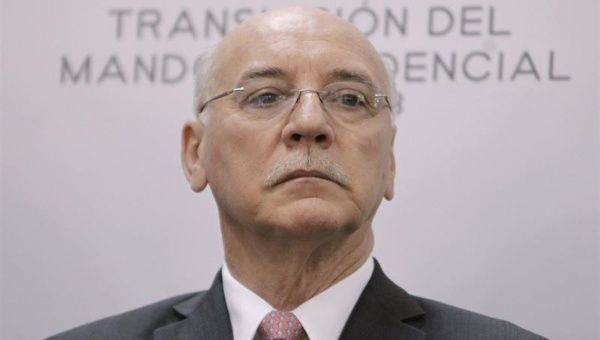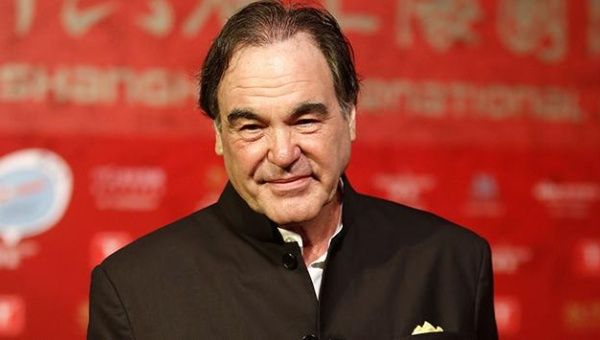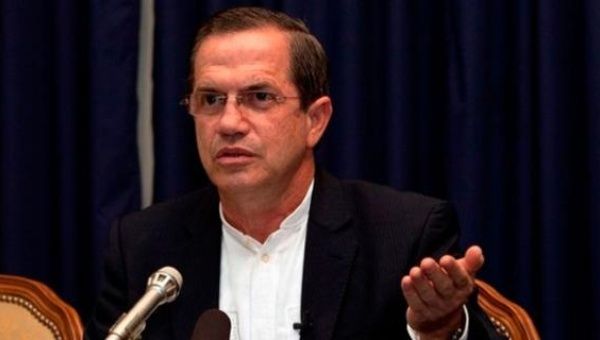por Portal do Planalto — publicado 24/09/2013 11:40, última modificação 04/07/2014 20:18
Nova Iorque-EUA, 24 de setembro de 2013
Embaixador John Ashe, Presidente da 68ª Assembleia-Geral das Nações Unidas,
Senhor Ban Ki-moon, Secretário-Geral das Nações Unidas,
Excelentíssimos Senhores Chefes de Estado e de Governo,
Senhoras e Senhores,
Permitam-me uma primeira palavra para expressar minha satisfação em ver um ilustre representante de Antígua e Barbuda – país que integra o Caribe tão querido no Brasil e em nossa região – à frente dos trabalhos desta Sessão da Assembleia-Geral.
Conte, Excelência, com o apoio permanente de meu Governo.
Permitam-me também, já no início da minha intervenção, expressar o repúdio do governo e do povo brasileiro ao atentado terrorista ocorrido em Nairóbi. Expresso as nossas condolências e a nossa solidariedade às famílias das vítimas, ao povo e ao governo do Quênia.
O terrorismo, onde quer que ocorra e venha de onde vier, merecerá sempre nossa condenação inequívoca e nossa firme determinação em combatê-lo. Jamais transigiremos com a barbárie.
Senhor Presidente,
Quero trazer à consideração das delegações uma questão a qual atribuo a maior relevância e gravidade.
Recentes revelações sobre as atividades de uma rede global de espionagem eletrônica provocaram indignação e repúdio em amplos setores da opinião pública mundial.
No Brasil, a situação foi ainda mais grave, pois aparecemos como alvo dessa intrusão. Dados pessoais de cidadãos foram indiscriminadamente objeto de interceptação. Informações empresariais – muitas vezes, de alto valor econômico e mesmo estratégico - estiveram na mira da espionagem. Também representações diplomáticas brasileiras, entre elas a Missão Permanente junto às Nações Unidas e a própria Presidência da República tiveram suas comunicações interceptadas.
Imiscuir-se dessa forma na vida de outros países fere o Direito Internacional e afronta os princípios que devem reger as relações entre eles, sobretudo, entre nações amigas. Jamais pode uma soberania firmar-se em detrimento de outra soberania. Jamais pode o direito à segurança dos cidadãos de um país ser garantido mediante a violação de direitos humanos e civis fundamentais dos cidadãos de outro país.
Pior ainda quando empresas privadas estão sustentando essa espionagem.
Não se sustentam argumentos de que a interceptação ilegal de informações e dados destina-se a proteger as nações contra o terrorismo.
O Brasil, senhor presidente, sabe proteger-se. Repudia, combate e não dá abrigo a grupos terroristas.
Somos um país democrático, cercado de países democráticos, pacíficos e respeitosos do Direito Internacional. Vivemos em paz com os nossos vizinhos há mais de 140 anos.
Como tantos outros latino-americanos, lutei contra o arbítrio e a censura e não posso deixar de defender de modo intransigente o direito à privacidade dos indivíduos e a soberania de meu país. Sem ele – direito à privacidade - não há verdadeira liberdade de expressão e opinião e, portanto, não há efetiva democracia. Sem respeito à soberania, não há base para o relacionamento entre as nações.
Estamos, senhor presidente, diante de um caso grave de violação dos direitos humanos e das liberdades civis; da invasão e captura de informações sigilosas relativas as atividades empresariais e, sobretudo, de desrespeito à soberania nacional do meu país.
Fizemos saber ao governo norte-americano nosso protesto, exigindo explicações, desculpas e garantias de que tais procedimentos não se repetirão.
Governos e sociedades amigas, que buscam consolidar uma parceria efetivamente estratégica, como é o nosso caso, não podem permitir que ações ilegais, recorrentes, tenham curso como se fossem normais. Elas são inadmissíveis.
O Brasil, senhor presidente, redobrará os esforços para dotar-se de legislação, tecnologias e mecanismos que nos protejam da interceptação ilegal de comunicações e dados.
Meu governo fará tudo que estiver a seu alcance para defender os direitos humanos de todos os brasileiros e de todos os cidadãos do mundo e proteger os frutos da engenhosidade de nossos trabalhadores e de nossas empresas.
O problema, porém, transcende o relacionamento bilateral de dois países. Afeta a própria comunidade internacional e dela exige resposta. As tecnologias de telecomunicação e informação não podem ser o novo campo de batalha entre os Estados. Este é o momento de criarmos as condições para evitar que o espaço cibernético seja instrumentalizado como arma de guerra, por meio da espionagem, da sabotagem, dos ataques contra sistemas e infraestrutura de outros países.
A ONU deve desempenhar um papel de liderança no esforço de regular o comportamento dos Estados frente a essas tecnologias e a importância da internet, dessa rede social, para construção da democracia no mundo.
Por essa razão, o Brasil apresentará propostas para o estabelecimento de um marco civil multilateral para a governança e uso da internet e de medidas que garantam uma efetiva proteção dos dados que por ela trafegam.
Precisamos estabelecer para a rede mundial mecanismos multilaterais capazes de garantir princípios como:
1 - Da liberdade de expressão, privacidade do indivíduo e respeito aos direitos humanos.
2 - Da Governança democrática, multilateral e aberta, exercida com transparência, estimulando a criação coletiva e a participação da sociedade, dos governos e do setor privado.
3 - Da universalidade que assegura o desenvolvimento social e humano e a construção de sociedades inclusivas e não discriminatórias.
4 - Da diversidade cultural, sem imposição de crenças, costumes e valores.
5 - Da neutralidade da rede, ao respeitar apenas critérios técnicos e éticos, tornando inadmissível restrições por motivos políticos, comerciais, religiosos ou de qualquer outra natureza.
O aproveitamento do pleno potencial da internet passa, assim, por uma regulação responsável, que garanta ao mesmo tempo liberdade de expressão, segurança e respeito aos direitos humanos.
Senhor presidente, senhoras e senhores,
Não poderia ser mais oportuna a escolha da agenda de desenvolvimento pós-2015 como tema desta Sessão da Assembleia-Geral.
O combate à pobreza, à fome e à desigualdade constitui o maior desafio de nosso tempo.
Por isso, adotamos no Brasil um modelo econômico com inclusão social, que se assenta na geração de empregos, no fortalecimento da agricultura familiar, na ampliação do crédito, na valorização do salário e na construção de uma vasta rede de proteção social, particularmente por meio do nosso programa Bolsa Família.
Além das conquistas anteriores, retiramos da extrema pobreza, com o Plano Brasil sem Miséria, 22 milhões de brasileiros, em apenas dois anos.
Reduzimos de forma drástica a mortalidade infantil. Relatório recente do UNICEF aponta o Brasil como país que promoveu uma das maiores quedas deste indicador em todo o mundo.
As crianças são prioridade para o Brasil. Isso se traduz no compromisso com a educação. Somos o país que mais aumentou o investimento público no setor educacional, segundo o ultimo relatório da OCDE. Agora vinculamos, por lei, 75% de todos os royalties do petróleo para a educação e 25% para a saúde.
Senhor presidente,
No debate sobre a Agenda de Desenvolvimento pós-2015 devemos ter como eixo os resultados da Rio+20.
O grande passo que demos no Rio de Janeiro foi colocar a pobreza no centro da agenda do desenvolvimento sustentável. A pobreza, senhor presidente, não é um problema exclusivo dos países em desenvolvimento, e a proteção ambiental não é uma meta apenas para quando a pobreza estiver superada.
O sentido da agenda pós-2015 é a construção de um mundo no qual seja possível crescer, incluir, conservar e proteger.
Ao promover, senhor presidente, a ascensão social e superar a extrema pobreza, como estamos fazendo, nós criamos um imenso contingente de cidadãos com melhores condições de vida, maior acesso à informação e mais consciência de seus direitos.
Um cidadão com novas esperanças, novos desejos e novas demandas.
As manifestações de junho, em meu país, são parte indissociável do nosso processo de construção da democracia e de mudança social.
O meu governo não as reprimiu, pelo contrário, ouviu e compreendeu a voz das ruas. Ouvimos e compreendemos porque nós viemos das ruas.
Nós nos formamos no cotidiano das grandes lutas do Brasil. A rua é o nosso chão, a nossa base.
Os manifestantes não pediram a volta ao passado. Os manifestantes pediram sim o avanço para um futuro de mais direitos, mais participação e mais conquistas sociais.
No Brasil, foi nessa década, que houve a maior redução de desigualdade dos últimos 50 anos. Foi esta década que criamos um sistema de proteção social que nos permitiu agora praticamente superar a extrema pobreza.
Sabemos que democracia gera mais desejo de democracia. Inclusão social provoca cobrança de mais inclusão social. Qualidade de vida desperta anseio por mais qualidade de vida.
Para nós, todos os avanços conquistados são sempre só um começo. Nossa estratégia de desenvolvimento exige mais, tal como querem todos os brasileiros e as brasileiras.
Por isso, não basta ouvir, é necessário fazer. Transformar essa extraordinária energia das manifestações em realizações para todos.
Por isso, lancei cinco grandes pactos: o pacto pelo Combate à Corrupção e pela Reforma Política; o pacto pela Mobilidade Urbana, pela melhoria do transporte público e por uma reforma urbana; o pacto pela Educação, nosso grande passaporte para o futuro, com o auxílio dos royalties e do fundo social do petróleo; o pacto pela Saúde, o qual prevê o envio de médicos para atender e salvar as vidas dos brasileiros que vivem nos rincões mais remotos e pobres do país; e o pacto pela Responsabilidade Fiscal, para garantir a viabilidade dessa nova etapa.
Senhoras e Senhores,
Passada a fase mais aguda da crise, a situação da economia mundial ainda continua frágil, com níveis de desemprego inaceitáveis.
Os dados da OIT indicam a existência de mais de 200 milhões de desempregados em todo o mundo.
Esse fenômeno afeta as populações de países desenvolvidos e em desenvolvimento.
Este é o momento adequado para reforçar as tendências de crescimento da economia mundial que estão agora dando sinais de recuperação.
Os países emergentes, sozinhos, não podem garantir a retomada do crescimento global. Mais do que nunca, é preciso uma ação coordenada para reduzir o desemprego e restabelecer o dinamismo do comércio internacional. Estamos todos no mesmo barco.
Meu país está recuperando o crescimento apesar do impacto da crise internacional nos últimos anos. Contamos com três importantes elementos: i) o compromisso com políticas macroeconômicas sólidas; ii) a manutenção de exitosas políticas sociais inclusivas; iii) e a adoção de medidas para aumentar nossa produtividade e, portanto, a competitividade do país.
Temos compromisso com a estabilidade, com o controle da inflação, com a melhoria da qualidade do gasto público e a manutenção de um bom desempenho fiscal.
Seguimos, senhor presidente, apoiando a reforma do Fundo Monetário Internacional.
A governança do fundo deve refletir o peso dos países emergentes e em desenvolvimento na economia mundial. A demora nessa adaptação reduz sua legitimidade e sua eficácia.
Senhoras e senhores, senhor presidente
O ano de 2015 marcará o 70º aniversário das Nações Unidas e o 10º da Cúpula Mundial de 2005.
Será a ocasião para realizar a reforma urgente que pedimos desde aquela cúpula.
Impõe evitar a derrota coletiva que representaria chegar a 2015 sem um Conselho de Segurança capaz de exercer plenamente suas responsabilidades no mundo de hoje.
É preocupante a limitada representação do Conselho de Segurança da ONU, face os novos desafios do século XXI.
Exemplos disso são a grande dificuldade de oferecer solução para o conflito sírio e a paralisia no tratamento da questão israelo-palestina.
Em importantes temas, a recorrente polarização entre os membros permanentes gera imobilismo perigoso.
Urge dotar o Conselho de vozes ao mesmo tempo independentes e construtivas. Somente a ampliação do número de membros permanentes e não permanentes, e a inclusão de países em desenvolvimento em ambas as categorias, permitirá sanar o atual déficit de representatividade e legitimidade do Conselho.
Senhor presidente,
O Debate Geral oferece a oportunidade para reiterar os princípios fundamentais que orientam a política externa do meu país e nossa posição em temas candentes da realidade e da atualidade internacional. Guiamo-nos pela defesa de um mundo multilateral, regido pelo Direito Internacional, pela primazia da solução pacífica dos conflitos e pela busca de uma ordem solidária e justa – econômica e socialmente.
A crise na Síria comove e provoca indignação. Dois anos e meio de perdas de vidas e destruição causaram o maior desastre humanitário deste século.
O Brasil, que tem na descendência síria um importante componente de nossa nacionalidade, está profundamente envolvido com este drama.
É preciso impedir a morte de inocentes, crianças, homens, mulheres e idosos. É preciso calar a voz das armas – convencionais ou químicas, do governo ou dos rebeldes.
Não há saída militar. A única solução é a negociação, o diálogo, o entendimento.
Foi importante a decisão da Síria de aceder à Convenção sobre a Proibição de Armas Químicas e aplicá-la imediatamente.
A medida é decisiva para superar o conflito e contribui para um mundo livre dessas armas. Seu uso, reitero, é hediondo e inadmissível em qualquer situação.
Por isso, apoiamos o acordo obtido entre os Estados Unidos e a Rússia para a eliminação das armas químicas sírias. Cabe ao Governo sírio cumpri-lo integralmente, de boa-fé e com ânimo cooperativo.
Em qualquer hipótese, repudiamos intervenções unilaterais ao arrepio do Direito Internacional, sem autorização do Conselho de Segurança. Isto só agravaria a instabilidade política da região e aumentaria o sofrimento humano.
Da mesma forma, a paz duradoura entre Israel e Palestina assume nova urgência diante das transformações por que passa o Oriente Médio.
É chegada a hora de se atender às legítimas aspirações palestinas por um Estado independente e soberano.
É também chegada a hora de transformar em realidade o amplo consenso internacional em favor de uma solução de dois Estados.
As atuais tratativas entre israelenses e palestinos devem gerar resultados práticos e significativos na direção de um acordo.
Senhor presidente, senhoras e senhores,
A história do século XX mostra que o abandono do multilateralismo é o prelúdio de guerras, com seu rastro de miséria humana e devastação.
Mostra também que a promoção do multilateralismo rende frutos nos planos ético, político e institucional.
Renovo, assim, o apelo em prol de uma ampla e vigorosa conjunção de vontades políticas que sustente e revigore o sistema multilateral, que tem nas Nações Unidas seu principal pilar.
Em seu nascimento, reuniram-se as esperanças de que a humanidade poderia superar as feridas da Segunda Guerra Mundial.
De que seria possível reconstruir, dos destroços e do morticínio, um mundo novo de liberdade, de solidariedade e prosperidade.
Temos todos a responsabilidade de não deixar morrer essa esperança tão generosa e tão fecunda.
Muito obrigada, senhores e senhoras.
Ouça a íntegra (22min37s) do
discurso da Presidenta Dilma





